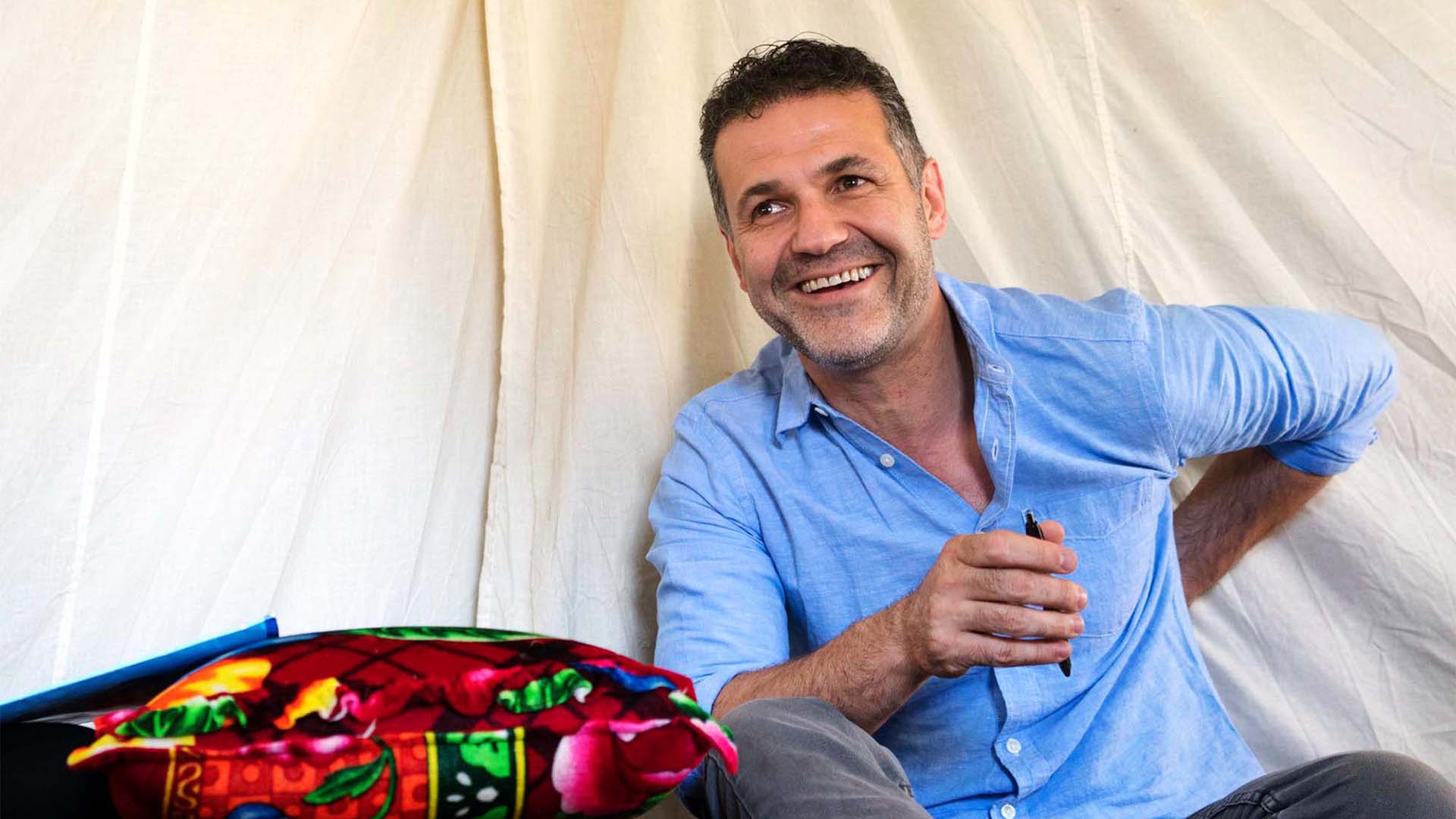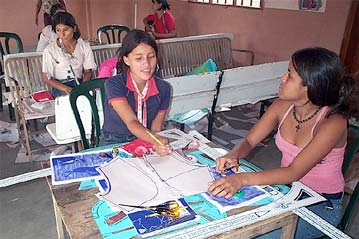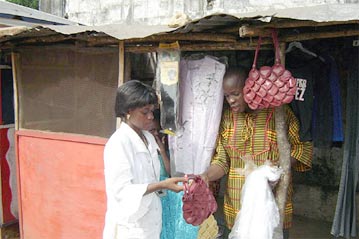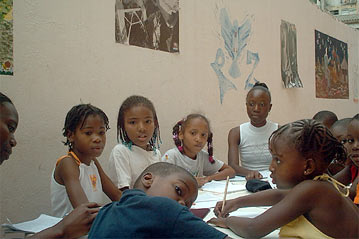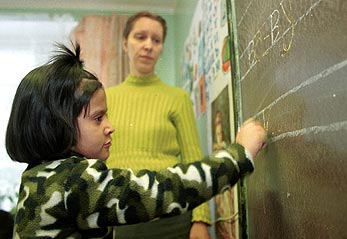Feature: In Iran, urban refugees debate return to post-Saddam Iraq
Feature: In Iran, urban refugees debate return to post-Saddam Iraq
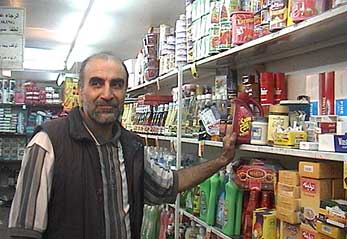
TEHRAN, Iran (UNHCR) - Roghay and Ashraf are seven. The two schoolgirls were born in Tehran, but they may be leaving soon. Their parents left their home in Karbala, southern Iraq, more than 10 years ago. They were just one family among the tens of thousands of Iraqi Arabs, mostly Shiites, who fled Iraq to escape Saddam Hussein's brutal crackdown on southern Iraq's rebellions in the wake of the 1991 Gulf War. Now that Saddam is gone, Roghay and Ashraf's families want to go back to their country.
Ashraf's mother knows that the security situation in Iraq remains precarious. But she still wants to go. "It is our homeland," she says. "Of course we want to go back. It is our dream."
Saddam's collapse has led many among the Iraqi community here to share that dream. Iran hosts over 200,000 Iraqi refugees, more than half of all registered Iraqi refugees in the world. The Iraqi population in Iran is varied, but can be divided into three main groups: the Iraqi Shiite Muslim Arabs; the Sunni Muslim Kurds; and the Feili Kurds, Shiites with Iranian ancestry. All fled Iraq to escape persecution under Saddam's regime.
Some 48,000 of them are hosted in Iran's camps. But most Iraqi refugees live in large urban centres, usually in the western parts of Iran. Tehran, with its higher standards of living and greater job availability, has attracted the majority of all Iraqis in Iran.
Ashraf and Roghay's families have settled in Doulatabad, an almost exclusively-Iraqi neighbourhood in the south-eastern corner of Tehran's sprawling metropolis. The local shopkeeper says that in the past few weeks, the talk here has been about nothing but the news from Iraq, and the hope that soon it will be possible to go back. He himself wants to stay in Tehran. He explains that although he was born in Iraq, he is of Iranian ancestry. He has lived here for 23 years, set up a business and raised a family. He says Iraq is only a memory, there is nothing for him to go back to. But he knows he is an exception. All his customers, he notes, want to go back to Iraq.
And so does Mohafaq Al'Ali, another shopkeeper in the neighbourhood who fled Iraq in the early '80s. As an opponent of Saddam's regime, he refuse to join the army in its war against Iran, and chose to take refuge in Iran instead. He, too, has a prospering business. But he says that with Saddam gone, it is now time to go back and help rebuild Iraq. He adds that he made sure that when his children were growing up, they spoke only Arabic at home so that they would be able to reintegrate well in Iraq when the time came.
But he has many questions. He wants to sell his business here but does not know how much of the profits and of his possessions he will be able to take back to Iraq. And he would like to go on a quick visit to Baghdad now, before taking his family back home for good. But he does not know if he will be allowed to do so. His father and brother are coming over from the United States soon. They, too, want to go back home.
Every day, the UN refugee agency in Tehran gets phone calls from Iraqi nationals wanting to know when they will be able to go back, and what assistance they can expect to get back home. Neither question is easy to answer. UNHCR is working with the Iranian authorities to set up procedures to help the process of repatriating those who wish to leave. Preparations are under way to organise repatriation centres and adequate facilities at border crossing points to make sure the returns take place in safety and dignity.
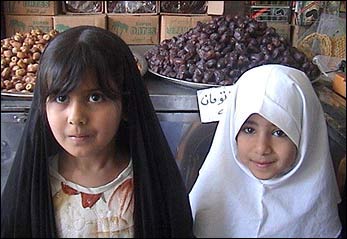
The agency expects that the first crossing of an initial, small group of Iraqi refugees could take place in June, using the Shalamancheh border crossing on the main road between Khorramshahr in Iran and Basra in southern Iraq. But at this stage, no firm date has been set, and it is still not possible to guarantee the safety of refugees once they cross back and disperse in Iraq.
UNHCR is now deployed in Iraq's three regions, with mobile teams operating from Baghdad, Basra in the south and Erbil in the north. However, security remains a major concern, and the teams are operating under severe constraints because of safety considerations. No crossing by returning refugees to central or northern Iraq is planned at this stage.
Fowad Shahrestani is the Director of the Iraqi Refugees' Aid Council, a non-governmental organisation registered in Iran to work with Iraqi refugees. Shahrestani himself is an Iraqi who came to Iran in 1991, during the Shiite uprising in the south. He has just returned from his first trip back to Iraq, on a mission to ascertain whether it is safe for Iraqi refugees to go back home.
His assessment is that the situation is still very volatile in Iraq. And he says many returnees may face the unpleasant surprise of finding new occupants in the homes they left years ago. This is what happened to him when he visited his hometown of Karbala. The new owner told him he had bought the house from the government. But worse news was to come - in Baghdad, he found out that two of his brothers who disappeared in the '80s had been executed in prison.
Marvi Alley is another Iraqi neighbourhood in Iran, a buzzing shopping area in the centre of Tehran, not far from the main bazaar. This is where the first Iraqi refugees came in the early '70s, and it has remained a centre for all Iraqis in Tehran; many call it Baghdad Market.
After the initial euphoria that followed Saddam's fall, the mood here has become more subdued. Many Iraqi refugees left families back home when they fled, and often their relatives were imprisoned or simply disappeared. For years, there was no news. Now, slowly, information is coming out about what happened to many prisoners during the long years of Saddam's regime. In Marvi Alley's mosque, they keep a list of the names of those who are known to have died.
Nadia Shahir Shia Mohammad has been coming to Marvi Alley a lot in the past few days from her home in Dolotabad. She has not heard from her brothers since they were taken away by Saddam's police 24 years ago. She says the police came to their home at night and took the men away. The women were driven to the border with Iran, and told to walk across. The Iranian authorities took her in, with her four-month-old daughter and her mother. Nadia will be leaving soon for Canada, where she has been granted refugee status. She says she could never go back to Iraq because she has too many painful memories associated with that country.
Fellow Iraqi Mohammed does not have any memory of Iraq. He has never visited the family village near Erbil, in northern Iraq, that his parents left before his birth. But now he wants to go back. He has no job here, and he says that as an Iraqi it is difficult for him to move freely within Iran. He does not see a future for himself in Iran, saying that everything here is temporary. At 28, he wants to start building a life for himself that can give him a sense of permanence. And that, he says, can only happen back home. It is a feeling many Iraqis here share.
By Marie-Hélène Verney
UNHCR Iran

